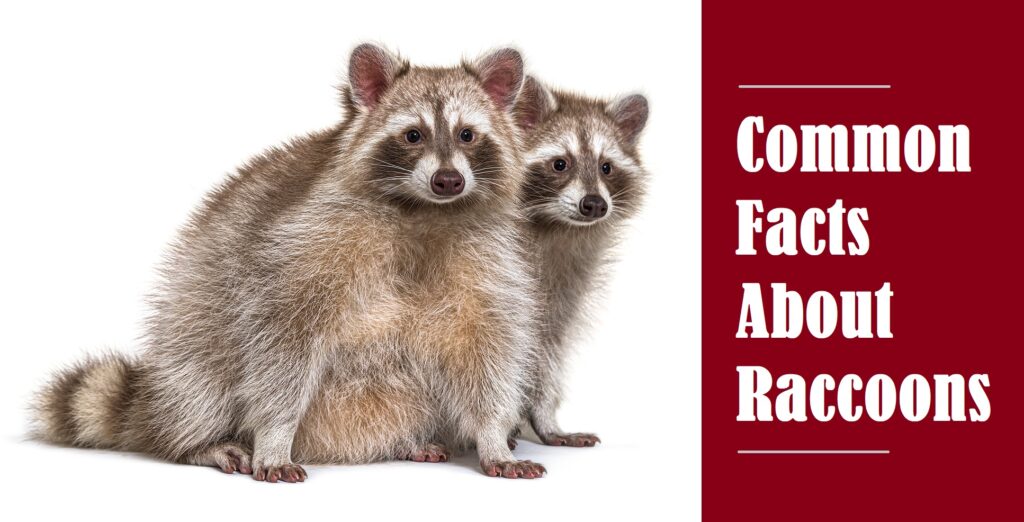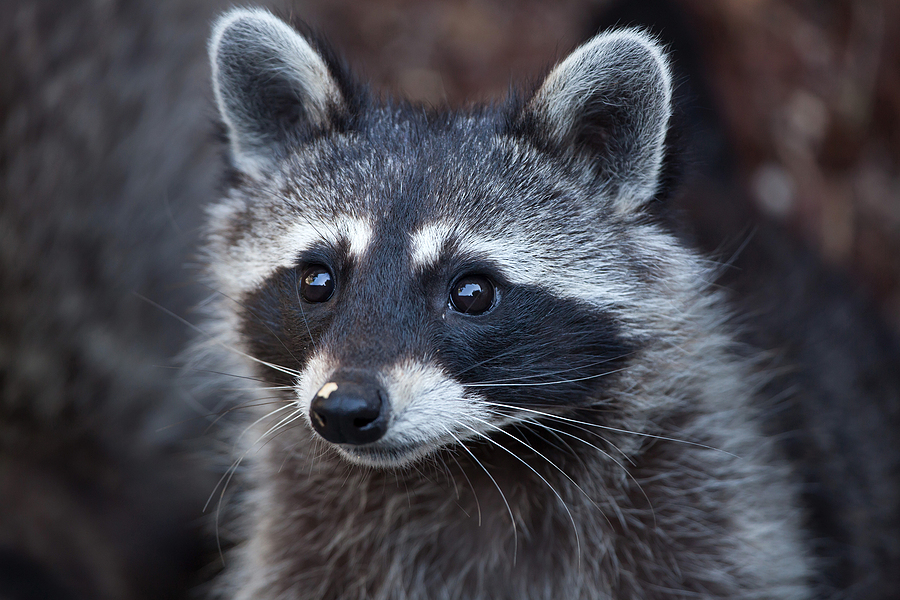Raccoons are a common woodland and forest species here in the Hoosier state. They are often seen as a nuisance pest because they trespass onto our properties and create loads of trouble. Yet, the raccoon species is a fascinating breed because of their unparalleled intelligence and human-like paws.
Continue reading to learn some of the most common facts about raccoons in Indiana, and what to do if they are bothering your property night after night.

Raccoons are Mammals
Raccoons are mammals and warm blooded. They are referred to scientifically as Procyon Lotor. They are covered in a thick, gray-colored fur that keeps them cool in the heat and warm in cold weather. They are most recognizable by their striped tail and black “bandit-like” mask over their eyes.
Raccoons Can Range in Size
Raccoons, depending on the region of the world and their diet, can weigh anywhere from 8 to 20 pounds on average. Raccoons found in our neighborhoods are usually fatter because of the constant and easy access to residential garbage cans and dumpsters.
Raccoons are Nocturnal Omnivores
Raccoons are nocturnal, meaning they live and stay active at night, and sleep during the day. They are also omnivores because they eat both plants and small animals as their primary food source. Raccoons prefer smaller animals like frogs, crayfish, hermit crabs, insects, and small fish. They are also attracted to eating fruits, nuts, and seeds.
Raccoons Can Live a Long Time
Raccoons are clever and eager to find food. This makes their life expectancy higher than mammals their size because they are good at surviving, even in the harshest conditions. They are known to live up to 20 years in domestication! However, due to many environmental threats, like predators, destroyed habitat, and highways, raccoons in the wild live only 1 to 3 years.
Raccoon Babies are Kits
Raccoon mothers give birth to baby raccoons referred to as kits. They usually carry their litter for about 65 days, and give birth to 2 to 5 kits at a time. They live in dens and protect and feed their young there. This is a safe hideaway from predators, as mentioned before. By three or four months, the baby raccoons are ready to be weaned and venture out on their own.
How to Get Rid of Raccoons in Indiana
If you are dealing with nuisance raccoons around your property, or have discovered raccoons in the attic of your home, act now. Contact Modern Wildlife Control at 317-847-6409 for prompt and professional 24 hour critter control in Indianapolis, Indiana for raccoons and more.
You Should Also Like:
How to Spot the Signs of Raccoons Around Your House
How to Make Your Own Non-Toxic Animal Repellent Spray
How to Tell if You Have Nuisance Animal Problems



